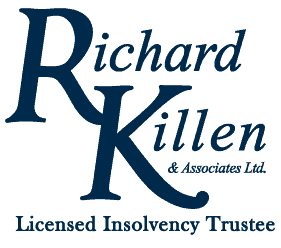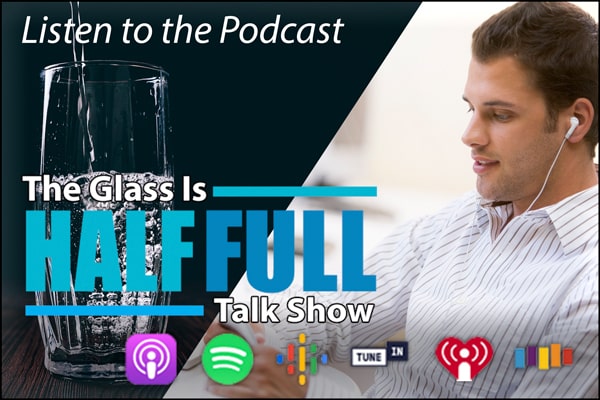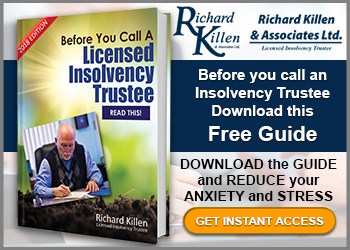Laid Off Due to the Coronavirus – Should I File a Bankruptcy or Consumer Proposal Now

The financial impact of the coronavirus is upon us with layoffs across a wide range of sectors leaving nearly half of Canadians now on the brink of insolvency. If you’re one of the millions laid off because of the coronavirus outbreak, you may be wondering if you should file a bankruptcy or consumer proposal and if it will help your monthly cash flow.
A survey released by the MNP Consumer Debt Index found that about half of Canadians (49%) are $200 or less away from not being able to meet their debt obligations each month. Many of those surveyed are not confident they can cope financially if they lose their job without going further into debt.
Losing your job due to a layoff means an income interruption which means there’s less money to pay your bills. This is most devastating for people who already have a large amount of debt as it will seriously impair their ability to meet their financial obligations.
If you are struggling with debt and your household income has dropped due to the recent health crisis and you feel you can no longer manage your debt, it might make sense to file a bankruptcy or consumer proposal to help get you back on your feet financially.
After all, a Canada consumer proposal and bankruptcy has the ability to “wipe out” debt, or at the very least, give you more time to pay. Both can give you a sense of control as they eliminate credit card debts, medical bills, and other debts – the same types of debts that most likely are falling into arrears due to the coronavirus crisis.
But hold on. Don’t assume that just because you have no employment income right now you necessarily need to do a bankruptcy or proposal. There are many things to consider.
Is Filing for Bankruptcy or a Consumer Proposal the Best Course Right Now?
One big thing right now, with all the Covid-19 government and creditor assistance plans is that you may “creditor proof.” That is just a cute way of saying that there may be no immediate reason to do anything because the creditors either canèt or wonèt pursue you for payment during this Covid scare.
When a person files for bankruptcy or makes a proposal in Canada it is often for the purpose to protect their wages and assets from collection actions. However, when you have been laid off and are not earning money, you have no income to garnishee (seize). Unemployment benefits or pension income cannot be garnished. Also, if they don’t own anything of value, they have nothing to seize. Therefore, filing for insolvency may not be necessary at this time. It does mean there may be no urgency to file. On the other hand, if you see your situation as being insolvent with little or no hope of improving even if the Covid crisis ended tomorrow, you might file.

There is another facet of this question. Being creditor-proof does not really mean that you are entirely protected from creditors.
- It won’t stop collection calls. Your creditors can and probably will continue to call you if you are in arrears with payments. If you are getting collection calls, the best advice is to explain that you have been laid off and no longer have the money to pay them. They may not like it, but the truth is always the best way.
- Also, it doesn’t mean that you can’t be sued. However since you don’t have any income to garnishee or assets to seize, the creditor may not want to spend the money to sue you.
Dealing With Debts You Owe the Banks and the Canada Revenue Agency
If you have debts with banks and the CRA, and you cannot keep up with payments due to COVID-19, a bankruptcy or consumer proposal Canada Revenue Agency might be the only sure way to stop collection action immediately.
- If you have tax debts owed to CRA, the agency does not need to go to court to take collection actions. It can seize income, even benefit payments such as EI. It also has the right to seize your tax refunds and HST cheques until the tax debt is paid in full.
- If you have bank loans and credit card debt and you have savings deposited in the same bank you owe the debt to, the bank has the legal right of offset and can seize payments directly from your bank account.
In these cases, any income you receive will not be safe and it may be necessary to file a bankruptcy or CRA consumer proposal to protect yourself. In these instances, it is best to start by speaking with us so we can assess your situation and explain and discuss ALL your options with you, including the non-bankruptcy and non-proposal ones.
Get Advice from a Licensed Insolvency Trustee
If the coronavirus pandemic has left you in this situation right now, struggling with debt, out of work with no income and being harassed by collector calls, it is important to seek immediate help from a Licensed Insolvency Trustee. A LIT, by law, must review your financial situation and provide you with a clear and impartial assessment of your situation and your solution options. A LIT will not tell you what to do. That’s your job – to decide for yourself. The LIT is there to arm you with the best information you can get, so the decision you make will be a proper and correct one for yourself and your family.
What You Can Do Right Now
Right now, the priority for you is to take care of your own health and safety and that of your family. Stay home – stay safe. Follow the recommendations set by Health Canada and Health Ontario to minimize the chances of contracting Covid-19. While we don’t know how long this pandemic will last, let’s remain optimistic and know that this is temporary. In due course this p[andemic will end, and life will eventually get going again.
But, if you are one of perhaps hundreds of thousands of Canadians who have been put behind the eight ball by COVID-19 and either know you are in financial trouble or believe you soon will be, you need to talk to someone like us at Richard Killen & Associates Ltd.
Contact us by phone at 1-888-545-5365, or by email at lawrence@killen.ca or brampton@killen.ca or just visit our website at www.rkillen.ca. At Richard Killen & Associates we remain committed to helping you as much as possible during this crisis situation.
4 Money Mistakes You Need to Stop Doing Now
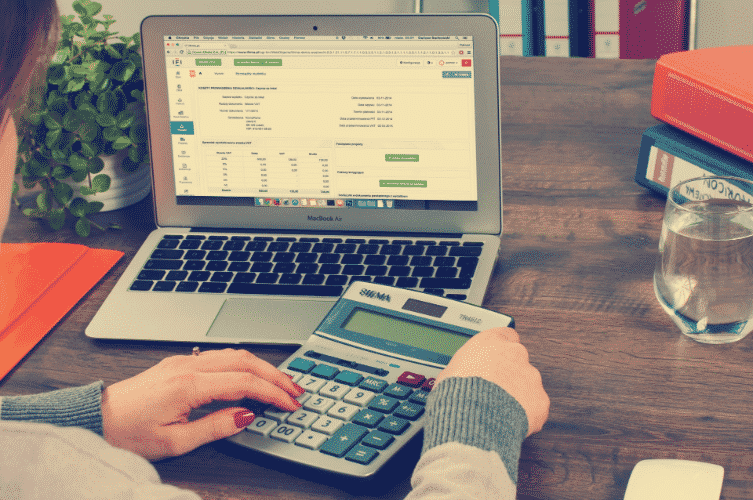
You may have made at least a few money mistakes in your life. Maybe you didn’t shop around enough and made a wrong buying decision that cost you huge savings. Maybe you spend money so easily that sometimes you wonder where all your money went right after payday.
Maybe you decided you would take care of your credit card debt but you keep putting off paying it month after month. These mistakes are all too common, many of us are guilty of them. However, we don’t want to keep doing them again and again because they can be costly mistakes that can add up over time and potentially create financial hardship for us and our family.
Make sure you avoid doing these common money mistakes over and over again:
Spending more than you make

Not living within your means is a top money mistake anyone can easily make. Baby boomers go into debt just to “keep up with the Joneses.” The millennials let FOMO get the best of them and try very hard to keep up with their peers to have the best things even though they cannot afford it. The fear of missing out is one reason why many young Canadians are carrying so much debt.
Ideally, you should be spending less than you earn, and not have to live paycheck to paycheck. It doesn’t mean you have to be cheap. You just have to be frugal and be careful about how you spend your money. Practice making smart purchasing decisions all the time so that every purchase you make is within your budget and you don’t have to live on borrowed money. Don’t buy a house or a car that you’ll struggle to pay and have to forego when you can’t keep up with payments. Focus on what you can afford now, and when you can earn more at some point, you can easily decide to upgrade.
Thinking you don’t need a budget
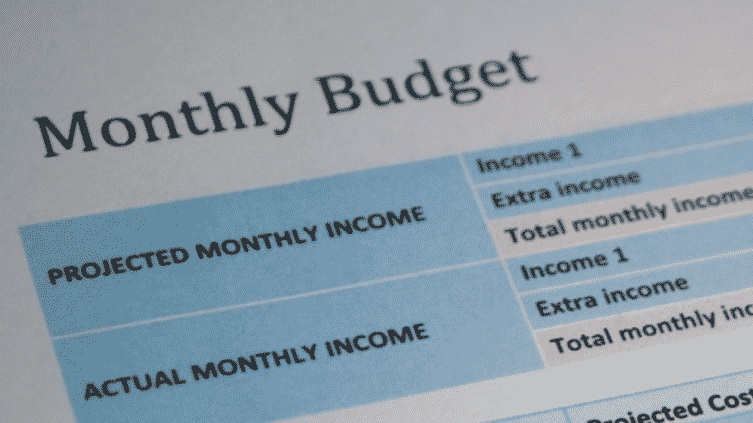
A budget is a crucial financial tool that can help you track your spending. You can easily go astray with your spending when you don’t have a guide to know how much money you have and how you are spending it. It’s important to set up a budget that is realistic to ensure it will work. List down exact figures on what you are spending on. Make sure to include every expense you make – bills, installment purchases, debt payments. Allow for some wiggle room for emergencies and entertainment, so that any unexpected expense won’t send your budget tumbling down. You should make a budget every month and make sure to account for new expenses so you don’t blow past your limit. Do what works for you – list your budget on paper the old-fashioned way, or create it on a spreadsheet or use a budgeting app like Mint or iExpenselt, the important thing is that you have a budget to help you track your spending.
Having credit card debt

Credit card debt has the biggest financial consequences and it’s a money mistake many Canadians have made at some point. Consider the high balances and high-interest charges you have to pay that could have been put to better use. If you’re not careful, it can drain your savings and get you into serious financial trouble. The excessive debt can cripple your household for years.
Make a commitment to yourself: If you can’t afford what you are putting on your credit card, do not make the purchase. Never pay much more than what you can afford, it needs to be within your means. Next, take the steps to correct this mistake right away and stop Using Your Credit Cards altogether. Pay up the balance you have now and stop adding to your balance. Start paying with cash so you don’t pay excessive interest and fees. It will be difficult at first, but spending with cash is absolutely necessary to help you be debt free. It’s also the best way to help you stay within your monthly budget because you become aware of what you spend and limit your spending quickly when you see that cash is low.
Not having an emergency fund
![]()
Another money mistake many of us make is not having an emergency fund. An emergency fund is ready cash which you can easily use in case of unexpected expenses. There are different definitions of what an emergency fund is. For some, it’s $1000 in a checking or savings account. For others, it’s a year’s worth of expenses invested. For most of us, it’s somewhere in between and having any emergency fund is better than none. It can be little expenses like minor car troubles or big expenses like a job loss or a debilitating illness, and this ready source of cash will help you be financially prepared when the need arises so you don’t have to be scrambling for funds. Determine how much you can set aside per month and start saving. Don’t worry whether the initial amount is sizable or not, you can always work your way to your desired amount. Any amount is better than not having any emergency fund at all.
You’re going to make some money mistakes over the years. If you’re aware of these mistakes, you can help yourself by taking steps to correct your mistakes and avoid them so you can plan for a better financial future.
What Debt Do You Pay First During a COVID-19 Financial Emergency?
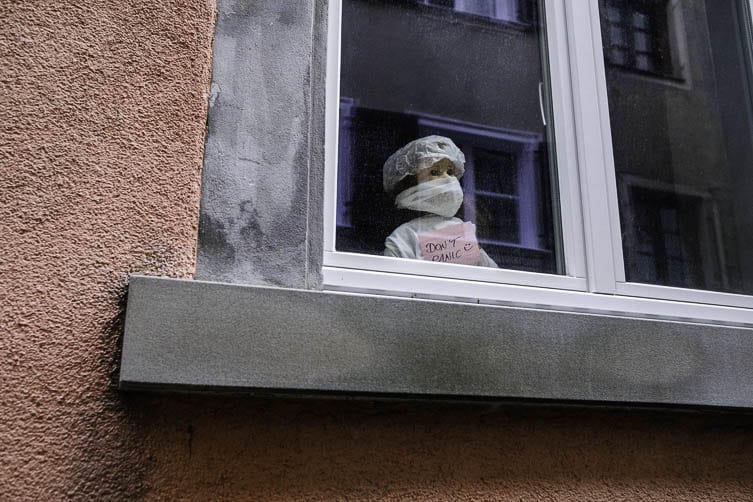
The world has been brought almost to a stop as we focus on fighting the spread of the coronavirus. Throughout Canada, we see business after business shut down and hundreds of thousands of people laid off. Some closures may be temporary, for some it may be permanent as they may not be able to recover after the crisis has abated.
While these closures may be necessary to deal with the virus, there are significant financial consequences to individuals and families. For Canadians who are living paycheck to paycheck this means that even a temporary reduction is going to cause a lot of problems.
If you are facing unpaid bills during this uncertain time, what debt should you focus on? What bills do you choose to pay first? Here are a few things to consider:
- If you are working, continue paying your bills and debts on time. Avoid the deferral programs if you do not need the financial help now, just go on and keep making those payments. If nothing else, make sure to make at least your minimum payments to avoid late charges, penalties, and potential negative hits to your credit.
- If you have been laid off or expect to be out of work in the coming weeks, you may need to look at prioritizing payments.
FOCUS ON HIGH PRIORITIES
High priority debts are generally the bills where a service will be shut off or an asset is in danger of repossession.
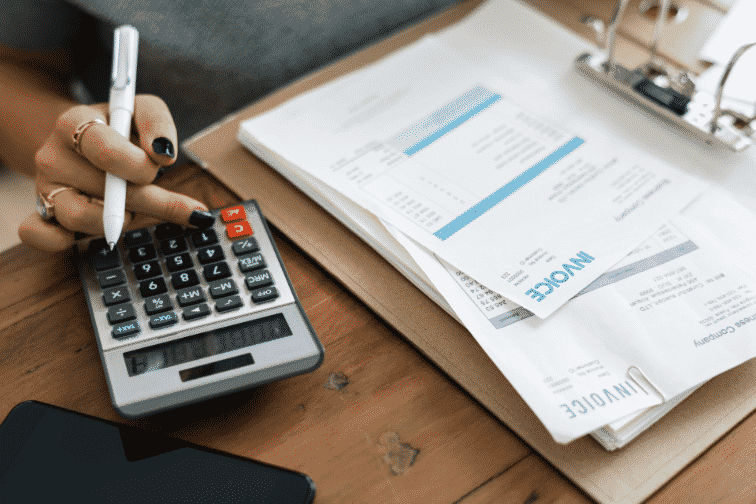
Utilities
You need to pay your utility bills to keep the lights on, the water running, and the gas line open especially during the lockdown period and you have to stay at home. These bills are top priority so you can keep your home safe and healthy in these unreliable times.
If you receive your hydro bill, and fear you cannot make the payment for the coming months, you may be protected by the disconnection ban, at least until July 31.
In Ontario, the Ontario Energy Board (OEB) has implemented protective measures that prohibits all electricity distributors in the province from disconnecting power because of non-payment until July 31. There will also be a rollback on electricity rates as part of cost-saving measures in response to the coronavirus outbreak.
To find out if you are covered by the disconnection ban and the rollback on electricity rates, read the full details here.
Communication Bills
You may also want to prioritize your cell phone bill and internet bill especially in the lockdown period or if you are self-quarantining at home. These will be major channels for you to be able to access information about what’s happening globally and stay in touch with family and friends, so keep paying them to keep the lines open.
Rent

Your home has become your greatest protection against COVID-19. If you are one of the 33% of Canadian households who are renting their homes, understandably you will want to focus on paying your rent as high priority. If you’re struggling to make the rent owing to the impact of coronavirus, don’t panic. Several provinces, including Ontario, Nova Scotia and New Brunswick have already issued temporary bans on evictions. This means you won’t be kicked out for as long as the eviction ban is in effect, although your landlord may still issue a notice of late payment of rent and may file the applications when the court resumes.
If you think you can’t pay your rent this month, the best thing to do is to talk with your landlord. Offer to pay what you can, even if it’s only part of the rent. This will help ensure you are not too far behind when things return to normal.
If this crisis looks like it will last for months, and it may, contact us so we can look at your situation in total and perhaps help you deal with the rent arrears then.
If you are having issues with your landlord, please find more information and resources on our blog’s section for Housing Help.
Our general advice is if you don’t have enough money to pay all of the bills, focus first on paying your utilities and rent before paying the other bills such as credit cards, medical bills, or other unsecured debts. As soon as you can, contact your landlord and service providers and see what they can do to assist you.
SECURED CAR LOANS AND HOMES LOANS
If you are paying a debt that is secured by an asset like your home or your vehicle the debt is classified as a secured debt guaranteed by the asset. This means that there are real consequences for not paying these debts – you risk having your car repossessed if you can’t make car loan payments and you can risk losing your home for nonpayment of mortgages. Hence, these are important, but not very immediate needs, to focus on as well.
What to do If you are falling behind on car payments

According to Ontario law, if you have been behind on the payments of your car loan, the lender has the legal authority to repossess the vehicle, and sell it to recover the amount you owe them. After the car is sold, if the amount is not enough to cover your car lease you will still have to pay the balance, and the lender could sue you and potentially garnish your wages.
Under normal circumstances, most lenders will not repossess a car until it is delinquent which means no payments have been made for 60-90 days. You can also take comfort in the fact that banks and lenders do not want to repossess your car as it usually entails that they take a financial loss. The repossession of a car is literally taken as the last resort. Hopefully, this will give you time to catch up on any missed payments.
In light of COVID-19 many of Canada’s banks and lending institutions are much more sympathetic to clients whose finances have been impacted by the health crisis and most are providing a deferment of payment on car loans for up to six months. If you see yourself starting to miss payments on your car lease, the best thing to do is reach out to your bank or car lender so they can assess your situation and see how to best help you.
Remember that banks and car lenders greatly prefer to keep the contract going rather than repossess the vehicle or house. They will normally be very willing to work on arranging a payment schedule.
What to do If you are falling behind on mortgage payments

In Ontario, a mortgage lender has the right to take possession of your home using either the power of sale or through a foreclosure if you default on your housing loan.
The good news is Canada’s banks and lending institutions are postponing mortgage payments for up to 6 months for those affected by the current health crisis. This will give you much needed time to catch up on payments.
The most reliable information on your mortgage options can be found at the Government of Canada and CMHC websites.
Another thing to keep in mind, lenders generally never start taking action for a power of sale or foreclosure as soon as you miss a single payment. The process for both is expensive and time consuming. They would rather work out an alternate payment plan to bring your mortgage back into good standing. If you are not able to pay your mortgage, the best advice is to contact your lender directly. They’ll look at your options and come up with a plan that will work best for your financial situation.
It is important to keep secure loan payments current, whether that’s a home loan or a car lease or some other loan that is tied to a valuable asset. If you think you’ll be unable to make an upcoming payment on any of these loans, the first thing to do is to reach out to your lender before you miss the payment and find out about deferrals or partial payments that can buy you some time. The key is to keep the loan on track so you can keep your assets.
CREDIT CARD DEBTS, MEDICAL BILLS, AND OTHER UNSECURED DEBTS

We do not advise anyone to stop payments on their credit card or other unsecured debts. However, we would put them at or near the bottom of the priority list when you are facing a financial crisis, such as now. The only reason we assess it this way is because there is the least immediate consequence for missing a few payments. With COVID-19 they will likely be the most flexible creditors to deal with. However, don’t ignore them either. If you can’t make a debt payment you should let them know so they won’t think they’re being forgotten or ignored.
In any case, the reality is that you may probably rely on your credit card or lines of credit to meet your immediate needs for food and medication because of your cash flow situation, and so you will have to keep on making payments to keep the credit lines open.
The good news is most credit card lenders are also offering up to six-month deferrals on credit card payments. This will give you time to reach out to your credit card company and possibly negotiate a payment plan that is best for your situation.
If you are worried about the uncertainty of your household finances right now and are having trouble organizing what debt to pay first during this financial emergency, make some priorities:
- Focus on meeting your immediate needs for food and medication
- Give importance to high priority utility bills like hydro, gas, internet
- Pay what you can on your rent or mortgage and talk with your landlord or mortgage lender about deferrals or partial payments.
- Meet the minimum on credit card payments and be very careful about taking on new debt, and if you must, make sure to keep your expenses and balances as low as you can.

If you have a lot of debt and are worried about how your finances can cope in this global pandemic, the best thing you can do right now is to talk with a Licensed Insolvency Trustee. We encourage you to be proactive so you can keep the best options open as long as possible.
We at Richard Killen and Associates continue to be committed to providing you with the best guidance and advice as you battle through this COVID-19 financial emergency. Our phones, emails and video chats remain open, call us at 1-888-545-5365 for a free consultation now.
COVID-19 – Why We Need to Stay Home

No one is immune to COVID-19. No matter how young you are. People of all ages can be infected by the new coronavirus. Older people, in particular and people with pre-existing medical conditions, such as asthma, diabetes, heart disease, kidney disease can become severely ill with the virus.
We’re in the middle of the pandemic. This is a new virus and we don’t really know yet how to deal with it. This is why it’s difficult to contain. It’s going to take some time for our bodies to know how to fight this virus. It’s going to take some time for our doctors to understand it and find the best ways to protect us.
The good news is we have dealt with viruses before – ebola, rabies, herpes, smallpox, dengue, influenza and the two prior novel coronavirus outbreaks SARS and MERS.
New viruses emerge all the time, the coronavirus is not the first and won’t be the last. We’ve learned how to deal with viruses in the past, and in time we’re going to win this one as well.
But, we’re going to need some time. How much time, no one knows for sure yet. But, we can make that time come quickly. How?
By social distancing – it means:
- Staying 6 feet away from other people if you must go out in public
- Not gathering in groups
- Staying home and limiting going outdoors
- Work from home, if possible
- Avoiding travel
- Isolating or sheltering in a place if government officials tell you to
Social distancing measures can slow the spread of COVID-19.
There’s evidence that it’s working – Find out here and here.
Social distancing will literally buy us the time we badly need:
- To help struggling health workers care for the hundreds and thousands sick,
- To understand how the virus works and find new treatments.
People can have COVID-19 and have very mild symptoms or no symptoms at all. So even if you think you are healthy don’t take any chances, it’s not worth it. Anytime you go to someplace with a lot of people, there’s more potential for exposure to the disease. And when you have it, everytime you pass this virus to someone else, it can pass to 3 or more people and during that time they can spread the virus to others as well. Before long a few people can turn into hundreds and then thousands and that’s how this whole situation blew up into the global health crisis it is now.
If you are young and healthy you might think this is no big deal because you’ve been told that this virus is nothing more than a bad cold to you. Not true at all! Almost 40% of people hospitalized are below 55, and for people older and have pre-existing conditions this is a lot more serious for them.
Social distancing isn’t just for you. It crucially protects people who are at risk from the disease.
You can literally save a life just by staying at home and staying away from each other.
You can just sit on the couch, watch TV or stare at your phone or tablet all day and save a life at the same time.
Now is the best time to work at home, sleep for hours, communicate on social media – use your phone and stay connected with family and friends.
Each one of us has a huge role to play in how the coronavirus outbreak plays out. You can potentially make it so much worse, or you can help make it better – if you’re willing to stay home.
All we’re being asked to do is stay at home and not go out. That’s not too much to ask.
We can all do this together. Let’s each do our part. Respect the advice of public health to keep us all safe. Practice social distancing. Stay at home, stay safe, stay healthy. If we get it right, then we’ll be able to move past this in less than no time.
Help for Individuals during the COVID-19 Pandemic

The recent COVID-19 business closures have made it a lot more financially difficult. If your debt payments become unmanageable give us a call. We have also included some short relief options in the article below from the Toronto & York Region Labour Council. Stay Safe!
Compiled by Labour Community Services and the Toronto & York Region Labour Council
Last updated March 30, 2020
Since COVID-19 has been declared a global pandemic, our society has changed rapidly as we respond to the health and economic crisis. Many levels of government have declared states of emergency, and drastic changes will impact every household.
Most information services are being overwhelmed with the volume of inquiries and applications – so please be patient with service workers who are working hard to focus on those most in need.
We hope this document can be a resource for you to find the help you need to sustain yourself and your family in good health and shelter. Most importantly, make sure you are safe at work. If you have any doubt about your personal safety, speak to your union.
On this page:
- Employment Insurance and other Work Benefits
- Health and Medical Resources
- Access to other Government-Supported Financial Assistance
- Housing Help
- Debt Assistance
- Community Resources
Employment Insurance and other Work BenefitsEmployment Insurance sickness benefits have always been available to people in quarantine as well as to those who are actually sick. With a massive increase in applications, there will be unavoidable delays in processing benefits. There are two main changes for workers who are quarantined or sick due to COVID-19:
- Applicants will not have to get a doctor’s note in order to apply for sick benefits.
- The normal 1-week EI waiting period is waived, so benefits start right away after someone stops working. There is a special toll-free number to call to ask for this:
Toll-free: 1-833-381-2725
Teletypewriter (TTY): 1-800-529-3742
Priority will go to processing claims from workers who are quarantined, and claims can be backdated if someone could not apply right away because of being quarantined.
Who is eligible for EI?
In order to be eligible for EI you need to have been paying into it. You also must have worked a certain number of hours in the previous year, depending on where you live. In Toronto, you are required to have 600 hours for EI sickness benefits and 700 hours for regular benefits. Note: if you have employer-paid sick benefits, you are required to use these first.
How to Apply for EI
We are in the process of developing “how-to” resources for EI applications. In the meantime, Settlement.org has put out a useful guide.
Also see this video produced by Public Legal Information, a Toronto-area legal clinic, summarizing the EI sick benefits, recent changes, and ways to apply:
Get assistance in your application through the City of Toronto’s Employment and Social Services.
Call 3-1-1 and ask for assistance. Help is available in more than 180 languages.
The Canada Emergency Response Benefit is a new measure introduced by the Federal government to cover workers who are sick, quarantined or laid off and who are not eligible for EI. This benefit will be available starting in April and will provide $2,000 per month for up to four months. To apply for the Benefit, Canadians will be able to access it through their CRA MyAccount secure portal beginning in early April.
More information on the Canada Emergency Response Benefit
Access CRA’s My Account for Individuals
*Note 1: More application details will be available in April as the government puts this new policy into operation.
*Note 2: The CERB was originally announced as two separate benefits, the Emergency Care Benefit and the Emergency Support Benefit. They have been combined into one benefit.
Health and Medical ResourcesCOVID-19 Specific: Stay informed and follow the advice of our public health experts. Access the most up-to-date information through the following links:
York.ca/covid19
Find a COVID-19 Assessment Centre: an interactive map of all assessment centres that indicates location, time, and advance appointment requirements.
Telehealth Ontario: Get fast, free medical advice through Telehealth Ontario on all subjects relating to health. Please note that wait times are long.
Toll-free: 1-866-797-0000
Toll-free TTY: 1-866-797-0007
Mental Health Supports: As social (physical) distancing may continue for a long time, CAMH has posted some strategies on psychological coping with COVID-19.
Access Other Government-Supported Financial AssistanceIncome Tax relief: The federal government has extended its tax filing deadline to June 1 and the tax payment deadline to September 1 in an effort to keep funds in the economy.
A GST credit of up to $400 for singles and $600 for couples who are in low- to moderate-income brackets will be automatically available upon tax filing, but note that you will need to have filed your 2019 taxes to qualify despite the extended deadline.
Canada Child Benefit: Families that receive the Canada Child Benefit will receive a top-up of $300 more per child. This benefit will be automatically added to your May payment if you are already in receipt of CCB.
For more information on the Canada Child Benefit such as how to apply and eligibility requirements, go to Canada child benefit or call 1-800-387-1193.
Help with cost of schooling from home: The Government of Ontario announced a one-time payment of $200 per child up to 12 years of age, and $250 for those with special needs, including children enrolled in private schools to help families pay for the extra costs associated with school and daycare closures. Please note that further details on the distribution of this money is not yet available.
Read Ontario Government media release
GAINS Top-up: On March 25, the Ontario government announced a temporary top-up to payments made through the Ontario Guaranteed Annual Income System (GAINS). Beginning in April 2020, monthly GAINS payment amounts will be doubled for a period of six months. This action will provide additional and immediate financial support to low-income Ontario seniors who may need more help to cover essential expenses during the coronavirus (COVID-19) outbreak.
Relief on Property Tax and other City of Toronto bills: A 60-day grace period is in effect for City of Toronto property tax, water and solid waste utility bill payments for all residents and businesses, for bills dated as of March 16. Late payment penalties for residential and business properties will be waived for 60 days, starting the same day.
The City said property tax accounts will be adjusted as necessary to reflect these relief measures.
More information via City of Toronto (see “extended grace periods”)
Property Tax and Utility Relief for other GTA Municipalities: Please refer to your specific municipality to see what resources have been put in place.
Whitchurch-Stouffville
Hydro Bill relief:
The Province of Ontario has temporarily suspended Time-of-Use rates so that they are now fixed at the lowest rate (known as the off-peak price) 24 hours a day for 45 days beginning on March 25, 2020. The Province has also expanded access to existing cost relief programs and eligibility for the Low-income Energy Assistance Program (LEAP).
Read Ontario Government media release
Toronto Hydro has programs in place to assist customers facing financial hardship. They will assist customers on a case-by-case basis with their bill payments.
More information from Toronto Hydro
The Ontario Energy Board (OEB) is extending the wintertime ban on electricity disconnections for non-payment for all residential customers to July 31, 2020. Low-volume, small business customers will now also be protected by the ban. In addition, the OEB is calling on distributors to be more flexible on arrears payment arrangements.
Licences and renewals: As part of the province’s enhanced measures, the Provincial government is extending the validity period of driving products, services and health cards. These new regulations include extensions for driver licences, licence plate validation, Ontario Photo Cards, and Commercial Vehicle Operator Registration certificates, among others. Expiring and expired health cards will continue to provide access to health services.
Media release from Ontario Government
Housing HelpEvictions: The Province of Ontario has declared a halt to new evictions and to enforcement of standing eviction orders.
More information via Steps to Justice
Chief Justice Court Order Suspending Evictions
Tenant Issues: The Federation of Metro Tenants’ Associations (FMTA) is an excellent source of help and advice on all tenant issues. Check the website for answers to your questions before calling. While FMTA has closed their office, you can still call the hotline and leave a message to get a call-back.
416-921-9494
Debt AssistanceMortgage Deferral: All six major banks have committed to working with individuals on a case-by-case basis to make deferred mortgage payments possible, for a single month or for up to six months.
For more information, contact your mortgage broker directly.
Student Loans: The Government of Canada has announced its plan to pause the repayment of Canada Student Loans and Canada Apprentice Loans until September 30, 2020, with no accrual of interest. These measures are effective March 30 2020. You do not have to do anything, as all pre-authorized debits will be stopped and other forms of payment will not be required.
Students who are currently studying can continue to apply for Canada Student Loans. There will be no change to the application process. If a borrower wishes to apply for student financial assistance during the pause, they should apply through their Province or Territory of residence.
Ontario portion of student loans: the Province is providing six months of Ontario Student Assistance Program (OSAP) loan and interest accrual relief for students.
Please note that for provincially-funded student loans from provinces other than Ontario you will need to check with the respective government to find out if similar measures are in place.
More information: Visit the National Student Loans Service Centre or Ontario Student Assistance Program webpages.
Contact your bank and creditors: If you feel you will be unable to stay current with your payments due to COVID-19, contact your bank and creditors immediately and let them know. Many creditors and banks are setting up measures to make sure anyone impacted by this disease doesn’t fall through the cracks.
Community Resources211 ONTARIO: A toll-free information line that can direct callers to resources for topics including abuse, homelessness and housing, emergency and crisis, mental health and addictions, family services, food, Indigenous services, disabilities, seniors, and more. Assistance is available in over 100 languages.
Dial 2-1-1 or visit 211ontario.ca
Legal Assistance: Community Legal Education Ontario is working to give practical answers to the important questions that people are asking about the law relating to the COVID-19 situation. They are also sharing updates about changes to government programs and court services. CLEO has a lot of information on many current issues including the following and more
Food Access: View this helpful list of available food banks and other food resources, compiled by Toronto Neighbourhood office
List of food banks
Resources to Get Financial Help and Manage Bills and Debt Payments During Coronavirus

Much of our lives have been put on hold due to the impact of the coronavirus. Sadly, though, bills still keep coming in and due dates for debt payments haven’t stopped. As with many Canadians, your budget is not prepared for the potential economic impact of this pandemic illness and there is stress and anxiety right now in not being certain if you will be able to keep paying your bills and manage debt payments during the coronavirus crisis.
You may be wondering:
- How will I pay my bills?
- How do I keep paying my mortgage?
- How can I save money if I’m unable to work?
- How will I be able to care for my family?
We know there may be little we can do to take away the fears and worries you may have right now. It may help put you at ease if you know that there are things you can do if you’re struggling to pay things like your mortgage or energy bills because of coronavirus.
Yes, you can get help and financial support if you are facing financial difficulties due to COVID-19. You are not alone in this. Many fellow Canadians are in the same boat as you.
Here we’ve gathered as much information to help you understand what help is out there and how you can get access to them.
Financial Support from the Government

There is help available from the federal and provincial governments. A number of helpful financial relief measures are in place or will take effect in the coming weeks to try and assist Canadians to cope under these strange conditions. Some highlights:
- If you have work and are unable to work because of COVID-19 related illness, injury, quarantine, or the need to self-isolate, you can apply for Employment Insurance (EI) sickness benefits and obtain up to 15 weeks of income replacement.
Special exemptions to note:
-
- The one-week waiting period will be waived for new claimants who are quarantined
- Claims of those under quarantine will be prioritized
- Those claiming EI sickness benefits due to quarantine will not have to provide a medical certificate
- Those who cannot apply for EI sickness benefits now may be able to apply later and have their claims backdated.
More information on how to claim Employment Insurance benefits can be found here.
- On March 25, 2020, the Government announced the release of the Canada Emergency Response Benefit which would provide $2,000 a month for up to 4 months to all workers – including self-employed workers, contract workers and those without paid sick leave – who are quarantined, sick with COVID-19, caring for a family member who is sick with COVID-19, or are staying home to care for their children due to school closures.
- By May 2020, low- or modest-income families will get a one-time special payment through the Goods and Services Tax Credit (GSTC) which will provide an additional benefit of $400 to single individuals and $600 for couples.
- The annual Canada Child Benefit (CCB), which is given in May each year, will provide an increase of $300 per child only for the year 2019-2020. This will mean roughly about $550 more for families with kids.
- For Canadian students currently paying their student loans, you will not be required to make repayments for six months and you will not be charged interest or penalties for this. You can also have the terms of your loan changed if you need more time to pay. Find out more here.
- For Canadian seniors with Registered Retirement Income Funds (RRIFs) and Registered Pension Plans, the required minimum withdrawals is reduced by 25% for 2020.
- There will be more time to pay income taxes as this will be deferred until June 1, 2020. More details here.
Details on the government programs are updated as they may be revealed in the days and weeks to come. Make sure to keep yourself informed by checking here: Coronavirus Disease (COVID-19) Support for Individuals and Families
Each Canadian province and territory also has support measures in place provided by the local government. For information on how they’re providing COVID-19 financial support, click on the link to visit your provincial or territorial government’s website:
|
Financial Help from Banks, Credit Card Companies and Mortgage Lenders

Canada’s banks and lending institutions have stepped up and are offering help to clients whose finances have been impacted by the coronavirus crisis. This assistance can include:
- Postponement of mortgage payments for up to 6 months,
- Deferred payments on car loans, and
- The possibility of temporary relief of credit card payments and other credit products.
If you’re unable to stay current on mortgage payments, credit card payments and car loan payments, we urge you to contact your bank or credit card company to find out how they may be able to help you. Each case is assessed on a case-by-case basis, and each company will have different programs in place that can assist so you don’t fall behind on payments and face unnecessary fees and penalties.
Energy Bill and Water Bill Assistance

Many utility companies are also announcing assistance plans to provide flexible payment terms to those struggling to pay electric, gas and water bills because of COVID-19. They will also adopt other measures such as not applying administrative charges for unpaid bills, and they will not disconnect customers during this time of uncertainty.
Check with your local utility company to see what kind of relief assistance you may be able to avail.
Help from Communication Providers
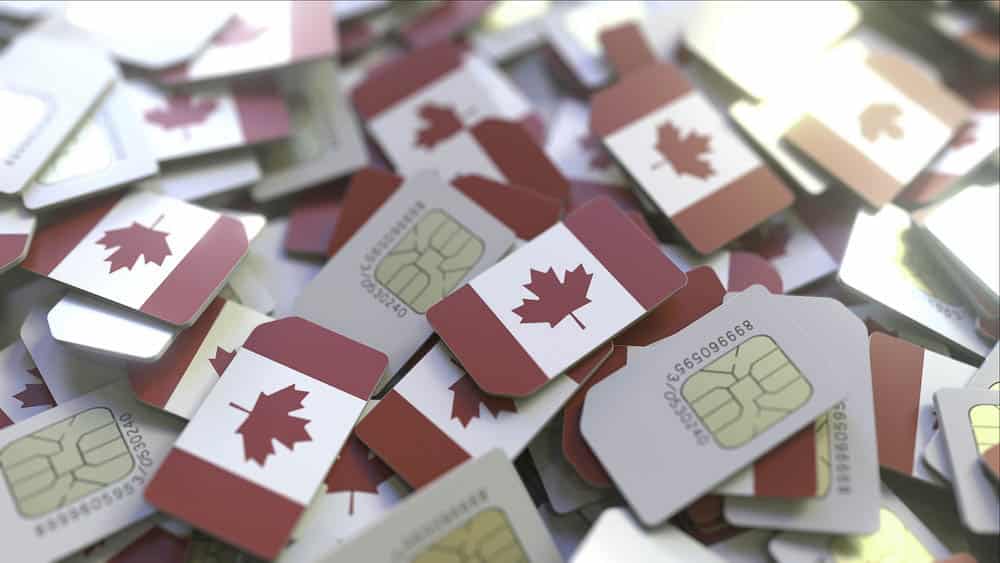
Communications companies such as Bell, Rogers, Shaw, Telus, Videotron, and Cogeco are also providing allowances to help you manage your internet and phone bills during this time of crisis, which can include waiving some internet overage, long distance, or roaming fees. Check with your local provider to see what type of help can benefit you.
Financial Support for Businesses
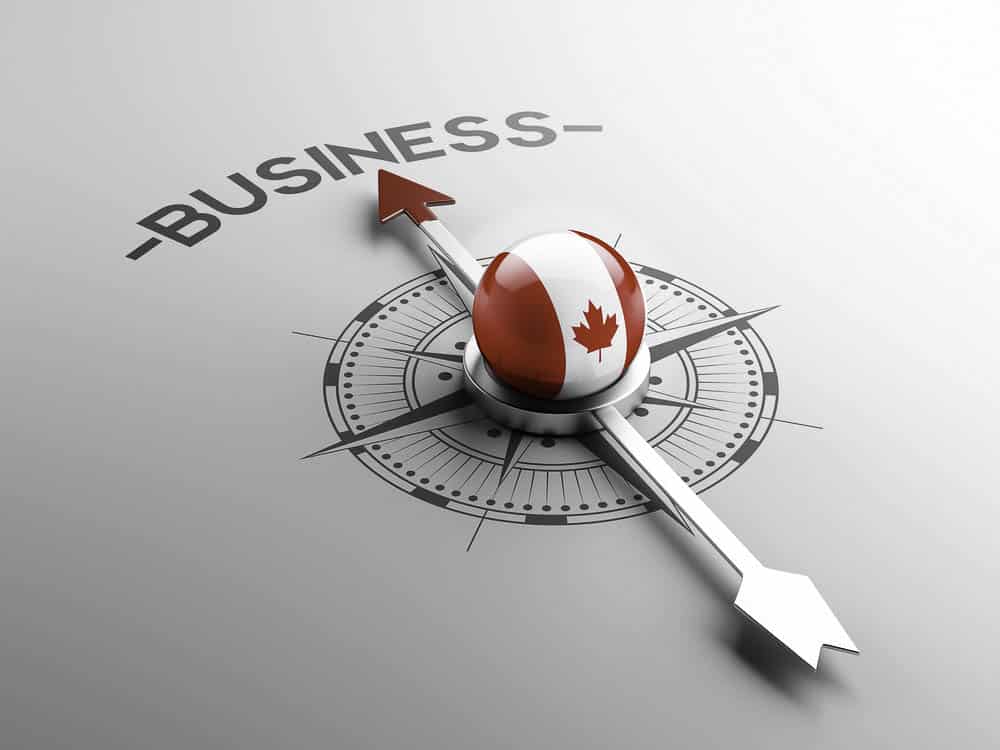
There is also help for your business.
The Business Development Bank of Canada (BDC) has programs in place to provide support for Canadian entrepreneurs impacted by the coronavirus. Clients and non-clients can avail of the relief program if they qualify. If you’re interested, you can get more information at the BDC website.
The Canadian government also has measures to help support businesses hit hard by the COVID-19 crisis. Check out government programs that may apply to your type of business – Canada’s COVID-19 Economic Response Plan Support to Businesses
For provincial and territorial support for businesses, check out your own province’s government website for relief measures that can help your business transition through these financially difficult times.
Getting Help from a Licensed Insolvency Trustee

Getting help from trusted professionals is one of the best ways to learn how to manage your bills and debt payments during the coronavirus crisis. For one, they can provide accurate information on the best ways to deal with debt. Licensed insolvency trustees, for example, can look at legal options that can provide you with legal protection from creditors. A LIT can also evaluate your unique circumstances and determine if you are creditor proof.
As Licensed Insolvency Trustees, Richard Killen and Associates are committed to providing free consultation to our clients throughout Toronto and the GTA who may want to find out the best ways to manage changes to their finances during the current crisis.
Our team is working from home and our phones and emails are always open for counseling and consultation. If you feel the need to talk, please feel free to contact us or leave a message at our website and we will get in touch with you as soon as we can. Due to the COVID-19, our staff is available for consultation via phone or video chat. Call us a 1-888-545-5365.
Alternatives To Bankruptcy In The Greater Toronto Area
In this video, Richard Killen, a Licensed Insolvency Trustee in bankruptcy with offices in Durham, and the Greater Toronto area talks about alternatives to bankruptcy for an insolvent person.
People come to see us and the very first thing that comes out of their mouth is “I don’t want to go bankrupt.”
Therefore, alternatives to bankruptcy is foremost in people’s minds when they come to see us.
Bankruptcy is a tool. It is a solution to a problem that needs some kind of a resolution and it’s there to be used as such. When we talk about alternatives to bankruptcy, we look at the idea that if you have financial problems, you ask yourself as to what degree do I have these problems and you start by thinking to define the level of the problem to be able to use bankruptcy as a solution.
There is an insolvent person. Being insolvent, in a legal definition, means being unable to pay creditors at least in the minimum way that they demanded to be paid. If a person is not insolvent, he or she can’t do a bankruptcy because there are other options that are open to them.

When people come to see us, they have already sought other ways of dealing with their problems. They have talked to relatives, friends, banks, and a few people. They are looking for the magic bullet that’s going to solve their problem. If they are insolvent and if they are not able to deal with creditors, they have five options open to them. Option number one, which is often tried by people, is to consolidate debts in to a consolidation loan.
One reason they may have problems is that they have so many creditors and they just can’t keep paying all of them. They have no means to pay for them. But if they approached a bank or a finance company, they might be able to get a loan and pull all those debts into one. Very often in that situation, the one payment you have to make for the bank is going to be less than the total payment of all the miscellaneous payments that you have to make previously. However, if you have trouble and you are insolvent, and chances are you are behind with your payments, therefore you will not be able to get a consolidation loan from a lender.
Assuming that a consolidation loan Toronto won’t work, there is another option. The option would be to talk to the creditors to find some kind of compromise. You must to do this with each one of the creditors because if one or two of them don’t go along with you or with the other creditors, what they can do if you are behind your payment is that they can mess up your plans by suing you.
Between the consolidation and the renegotiation with the creditors, we call these things the commercial options because you don’t need a guy to help you with that. What you need is to find a lender or you need to make a deal with your lender. However, if they don’t work, then you’re probably going to look at the legal options that the trustee can provide.
That’s why people come to see us. They know that the first two options that I was talking about are no longer available, so they come to the trustee. The trustee will offer them and provide them options. One of them is the proposal which is an alternative to bankruptcy.
When you’re doing a proposal, you are getting all the protection that the bankruptcy process offers you, such as putting a stop to creditor pursuits and creditor harassment. If you are to do a proposal, which the vast majority are now calling a consumer proposal, you are going to essentially make a deal with your creditors. Instead of having a one-on-one with them like in Option Two that I have mentioned, you can make a deal with your creditor all in one. The negotiations are with the group and are usually done by a trustee. Therefore, there’s quite a load off your mind and off your stress level.

If the creditors agree, then you have taken all those various debts and consolidated it into one payment every month. You make the payment to the trustee and the trustee distributes the money to the creditors in accordance with whatever arrangement that you and the creditors agreed on.
Not everyone can make a proposal. Some people don’t have the means to do it. They don’t really have anything to offer. But it’s surprising that some people come here and when they have heard the proposal, they feel that they don’t have the means to do it. They do not believe they can offer anything that the creditors would accept and in many cases they do.
The creditors have decided that it’s better to go on to a proposal than to force people to end up to bankruptcy where very often, creditors get nothing or next to nothing.
Are there alternatives to bankruptcy? Yes. There are a lot of alternatives. Most people have looked at them to some extent before they come to see us. When they come to see us, we are going to make sure that they do know about all the other options. Quite frankly, if somebody can avoid bankruptcy as far as I am concerned, that is a good move.
A Person in Toronto Asks -Should I Go Bankrupt?
In this video, Richard Killen, a Licensed Insolvency Trustee in bankruptcy with offices across Toronto answers the question.
I don’t know how many times I have been asked by somebody during the course of the free consultation we provide to consumers at the beginning. What do you think, should I go bankrupt?
My answer is always the same for people. Its not up to me to tell you to go bankrupt.
Bankruptcy is a personal decision. What might work for one person, might not work for another person. Although what you can get from a trustee is a good idea of what is going to happen if you do a bankruptcy opposed to a consumer proposal.
So to answer the question, should I go bankrupt? My answer is you need to decide that.
What happens to my tax refund in a bankruptcy or consumer proposal in Brampton?
In this video, Richard Killen, a Licensed Insolvency Trustee in Ontario with offices in Durham region (Pickering & Oshawa) talks about whether a person’s income tax debt can be included in a personal bankruptcy in Ontario.
Something that comes as a big surprise to a lot of people is when they find out an income tax debt, an ordinary income tax debt is something that is dischargeable in a bankruptcy or can be taken care of in a consumer proposal. The people of Durham or people from across the Greater Toronto Area ask me that question numerous times. It is not a strange thing as ordinary income tax debt is treated as a debt.
There is nothing special about the fact it is a debt owed to the government. A debt to the government is not anything special in a bankruptcy situation. Therefore, in a bankruptcy in Durham or anywhere in Ontario, a tax debt is dischargeable.
If you are behind on your taxes or are have other debt problems, consider talking to one of our trustees and debt experts. We can help you review all your options for debt relief.
Contact our Durham office us for a fresh start at (905) 420-6565
Can I Include Income Tax Debt In My Bankruptcy in Durham, Ontario?
In this video, Richard Killen, a Licensed Insolvency Trustee in Ontario with offices in Durham region (Pickering & Oshawa) talks about whether a person’s income tax debt can be included in a personal bankruptcy in Ontario.
Something that comes as a big surprise to a lot of people is when they find out an income tax debt, an ordinary income tax debt is something that is dischargeable in a bankruptcy or can be taken care of in a consumer proposal. The people of Durham or people from across the Greater Toronto Area ask me that question numerous times. It is not a strange thing as ordinary income tax debt is treated as a debt.
There is nothing special about the fact it is a debt owed to the government. A debt to the government is not anything special in a bankruptcy situation. Therefore, in a bankruptcy in Durham or anywhere in Ontario, a tax debt is dischargeable.
If you are behind on your taxes or are have other debt problems, consider talking to one of our trustees. We can help you review all your options for debt relief.
Contact our Durham office us for a fresh start at (905) 420-6565
